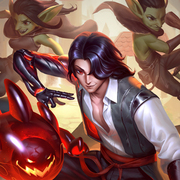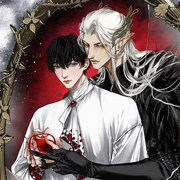The girl tries to continue with her usual routine:
Get up and walk to the bus stop for school; keep her head down as the bus winds its way through rush hour traffic; keep her head down through all of her classes; ignore the teachers who look at her with frustration and concern and the kids who sneer; hide her hands curled into fists in her lap; flee with the final bell; make her way home; avoid as many people as she can; sit at the dining room table with burned vegetables and too-dry meat; and listen to her foster parents argue as though she isn’t there.
But something changes.
Suddenly, it seems like the neighborhood woman is everywhere. She’s sitting on her front stoop every time the girl passes by on her way back from the bus stop, a smile in the corner of her weathered mouth. Sometimes, she’ll even nod—a sharp, regal dip of her head that the girl has no idea how to respond to.
It carries on from there, as though the strange woman is a friendly ghost and the girl is the lonely thing she’s chosen to haunt.
The girl sprints for the bus one morning, certain that she’s going to have to watch it speed away into the flow of the city and deal with the annoyance of a tardy slip. Instead it lingers, as if actually waiting for her, and when she reaches it, there is the neighbor, practically holding the doors open in spite of the glaring bus driver.
The girl forgets her umbrella another day, forcing her to huddle in the winter downpour like a pathetic, wet animal. Until an umbrella materializes over her head, pink like the cherry blossoms that coat the streets in the spring, and the woman smiles down at her, then presses the handle against her palm, urging the girl to take it. Once the girl does, she walks away whistling an old, lilting tune—unaffected by the water sliding off her dark raincoat.
The girl struggles with several bags of groceries as she slogs down the street, carefully checked off from the list thrown at her by Foster Mother Nine. The ground is slick with melting snow that crunches beneath the girl’s boots. They’re an old pair, with just enough of a gap along the seam of the sole to let the icy slush through, soaking her sock. The bags are heavy, too heavy, and she should have made two trips but she was determined to prove that she could do something right.
Only she couldn’t and now she’s going to spill groceries all over this dirty road to be run over by cars and cyclists, any second now the bags are going to—
A strong hand latches onto her shoulder, steadying her as she starts to topple, and another catches one of the bags that’s slipping off her arm. She blinks up at the neighbor woman, who peers back with eyes that remind the girl of the sky in the summer.
The woman rearranges the bags on the girl’s arms so they sit more comfortably, no longer at risk of escaping. Then she nods, her normal sharp gesture, and slips away as quickly as she appeared.
It continues and continues and continues. They never speak a word to each other, just exchange nods, but maybe the woman is a guardian angel instead of a ghost. Maybe in the midst of all this turmoil, the girl gets one bright thing to hold on to.
Foster Mother Nine told her that children should be “seen and not heard” on her first day inside the big, perfectly decorated house, and she glared in disapproval over her gold-rimmed glasses whenever her precious quiet was disturbed. So the silence grew teeth, ready to consume her whenever she crossed the threshold. Now she tiptoes through rooms, trying to make herself invisible.
She’s still too violent, too dangerous, too something. Not what they wanted, in this mausoleum that they want to call a home.
(They wanted a perfect doll they could put on a shelf, but the girl doesn’t know how to be that for them.)
The anger inside of her grows: all fangs and fury and gnashing claws.
She stops keeping her head down and her fists in her lap. When one of her classmates calls her an orphan under his breath, she hits him in the face with her lunch tray. Another girl trips her on the bus and she lashes out, kicking the girl right in the shin and making her shriek. A boy that lives on her street tries to take her lunch and she knocks him to the ground.
It’s never enough. They howl and wail and snivel at her, muttering pathetic threats under their breaths, but she wants them to fight back. She wants a challenge. Wants to feel like she did in one of the first homes, where everything was survival and everyone was at war. That was simple. Easy. She knew where she stood when it was a battle of the fittest.
So she ignores the disapproving looks from her teachers, the threatening letters that her foster parents will never read, the threat of expulsion they hang over her head like it’s supposed to mean anything.
Instead, she seeks out bigger targets. The boys several years above her who all have little leagues of minions like the Neighborhood King she still sees sometimes on her way home, smirking like he’s waiting for her to try him again.
She thinks one day and throws rocks at the other boys at school during recess. They chase her halfway down the street after she scales the fence surrounding the school yard and they easily surround her. She still manages to get in several good punches before a swarm of teachers descends to intervene, even though she’s left with a split lip and black eye in return
Every time before, she’s gone home to silence and hope her actions would scream NOTICE ME loud enough for her foster parents to hear her, to finally pay attention. This time, they bustle into the principal’s office with expressions caught somewhere between fury and embarrassment. They make apologies with their fingers digging into her shoulder, painful even through the layer of her uniform, and when they usher her into the car they almost never drive, they glare at her in the rearview mirror.
“This can’t continue,” Foster Mother Nine says, firm.
“If it does, we’ll have to take drastic measures,” Foster Father adds, like they rehearsed this.
“Drastic Measures” is always code for being sent back into the system. To another home or another orphanage.
And the girl should stop, she knows this. She doesn’t want to be sent away. But she’s so angry. At them, at the school, at everything.
So the next day she keeps her head down one last time at school. But on the way home, she plants herself in front of the King when he smirks at her.
“What do you want, little girl?” he asks, mocking.
She punches him as hard as she can.












Comments (20)
See all